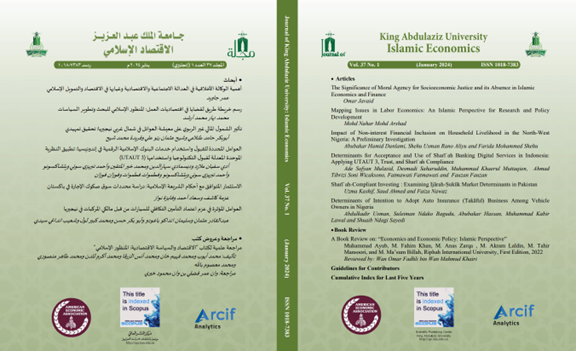A Book Review on “Economics and Economic Policy: Islamic Perspective”
Main Article Content
Abstract
Since its establishment as a formal discipline during the First Makkah Conference in 1976, Islamic Economics has garnered significant attention from scholars around the world. Over more than four past decades, dedicated Islamic economists have strived to produce a textbook of exceptional value, aiming to provide universities with a comprehensive resource that imparts profound insights into the Islamic perspective on economics. However, this undertaking has not been without its challenges, both internal and external. Amidst the pursuit of this noble goal, a growing sense of dissatisfaction has emerged among earlier generations of Islamic economists. They perceive a concerning trend within Islamic Economics, where undue focus has been placed on the discipline's end product, specifically Islamic banking and finance, resulting in a reliance on conventional economic paradigms. This imitation has deviated from the authentic development of Islamic Economics based on its inherent principles. In response to these concerns, the book under review courageously confronts these challenges head-on, seeking to redirect the discipline along its original trajectory. The authors have ambitiously assembled a rich tapestry of perspectives that encompasses not only rigorous legal (fiqh) analysis but also profound insights from Islamic philosophy and from economic analyses into the fabric of their work. As a result, the reviewer considers the book a vital addition to the contemporary Islamic Economics curriculum in numerous universities.

